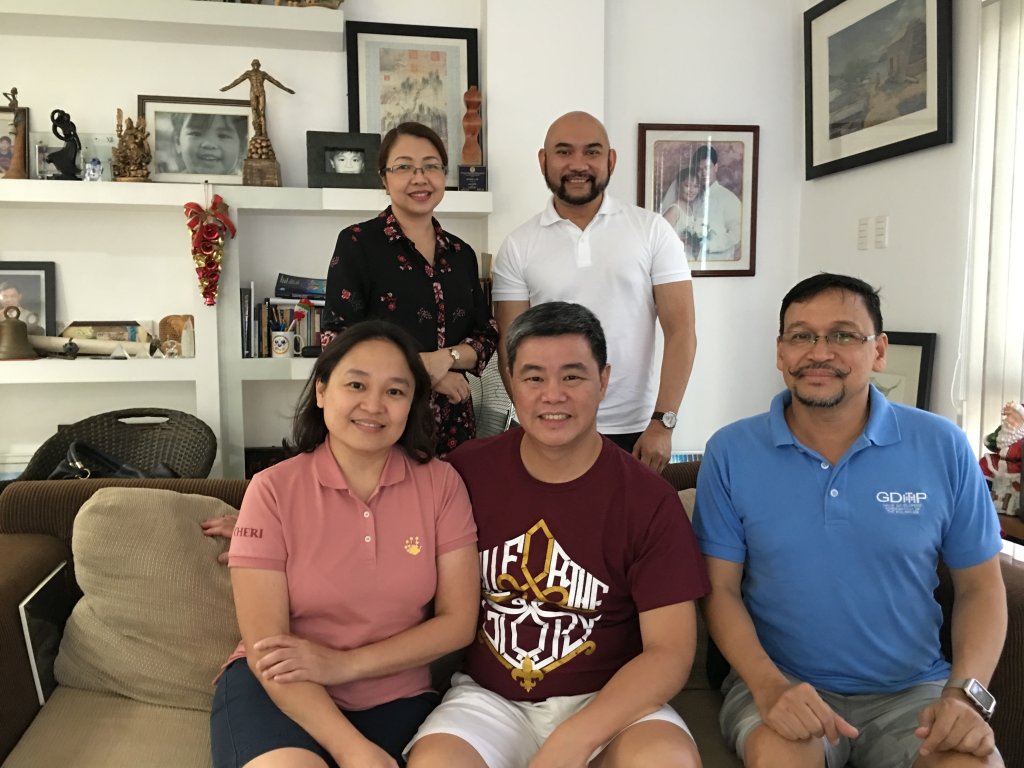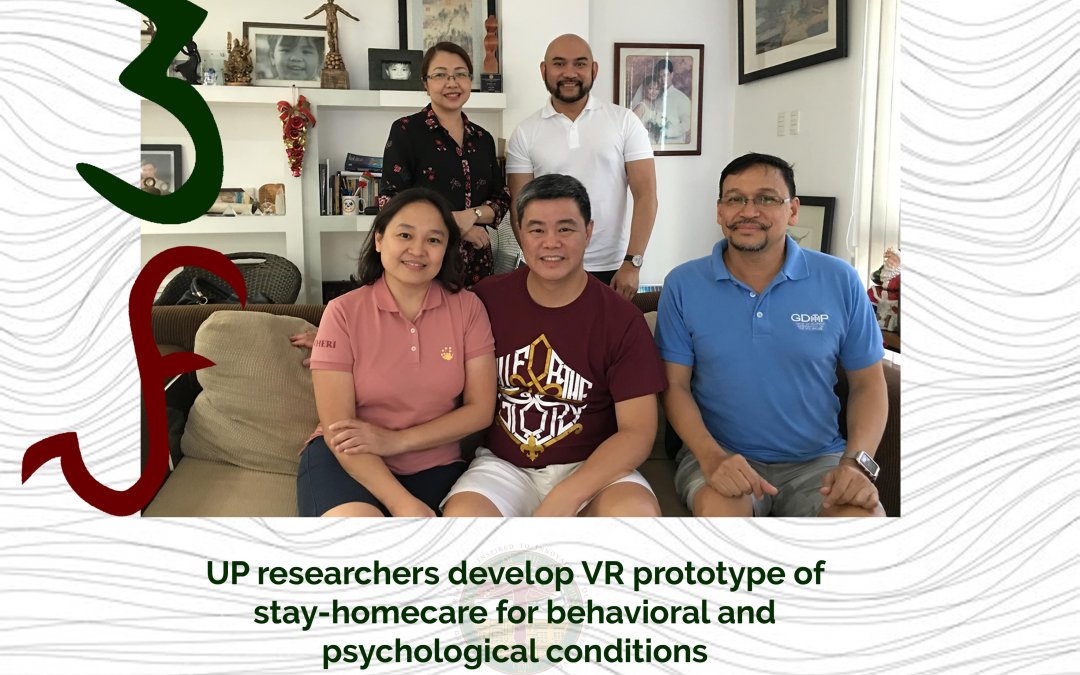Neurological conditions, such as Dementia and Cerebral Palsy, affect the cognitive abilities, motor functions, and performance of activities of daily living of patients. These manifestations may occur throughout the patients’ lifetime, which may render poor quality of life for both the patients and their families.
To date, there is no cure for both of these conditions, as pharmacologic management is limited to symptomatic treatment only. There are several therapies available for patients with these conditions, such as physical therapy, occupational therapy, speech and language therapy, and recreational therapy, which may improve outcomes and enhance the quality of life of patients and their families. In international settings, research studies are being conducted to explore the use of virtual reality technology as an innovative tool for the rehabilitation management of these conditions. Most relevant to the current Covid19 pandemic, the technology is seen to redefine homecare as stay-homecare. The VR media is meant to promote home therapy for the target patients, mostly composed of a population that is vulnerable to the current pandemic.
The research team – composed of Dr. Jaime DL. Caro (Department of Computer Science, UP Diliman), Dr. Veeda Michelle M. Anlacan, Dr. Michael L. Tee, Dr. Cherica A. Tee, Dr. Dominic Jamora, Dr. Marilie Ruiz Aguila (College of Medicine, UP Manila) and Prof. Gregg S. Lloren (College of Communication, Art, and Design, UP Cebu and the University of Edinburgh) – is developing an immersive technological system to rehabilitate the different neuropsychiatric symptoms that come with behavioral and psychological dementia.

(Top L-R) Dr. Veeda Michelle Anlacan, Prof. Gregg Lloren (Bottom L-R) Dr. Cherica Tee, Dr. Michael Tee, and Dr. Jaime Caro (Not in the photo: Dr. Dominic Jamora and Dr. Marilie Ruiz Aguila)
The proposed Immersive Technology System (ImTS) will serve as a complementary strategy for implementing rehabilitation techniques for patients with dementia and behavioral and psychological symptoms and patients with cerebral palsy and mobility limitations. ImTS will manage the creation, customization, and fruition of multimedia interactive simulation of the world in a virtual environment (VE) that is meant to optimize the power of a technology that augments human capability. Such technology supplies a more flexible environment than the real world, thus giving users a new experience with minimized risk of real danger or physical harm.
The program aims to improve the overall quality of life of both patients and their caregivers by assisting patients to recall memories, encourage physical activity, improve social interaction, enhance their emotional well-being, and perform activities of daily living through the interactive visual content/game applications. The research also aims to establish an effective immersive technology system that can be integrated into the standard therapeutic practices in rehabilitation management.

As an alternative to HMD, the research team will develop a cheaper version of a semi-CAVE (an immersive screen) for the projection of interactive immersive media. This example of a projection of a panoramic painting by Robert Barker (18th century) of Old Town, Edinburgh, UK, is at the Main Library of the University of Edinburgh.
Dr. Veeda Anlacan, Dr. Mike Tee, Dr. Chericca Tee, Dr. Dominic Jamora, and Dr. Marilie Ruiz Aguila will be conducting the clinical trials. Dr. Jaime Caro and his team will focus on software and engineering of the prototype, and Prof. Lloren and his team in uCreate Laboratory from the University of Edinburgh will deal with media design.
The research is composed of four projects that all touch on different behavioral and psychological conditions. The first phase will focus on the design and development of a semi-CAVE system for non-HMD (Head Mounted Display) users, customized software VR solution, and training of healthcare professionals. The study will run for two and a half years. The second phase will focus on clinical trials and pre-clinical studies and will run for fifteen months.
The research is funded by the Philippine Council for Health Research and Development (PCHRD) with the technical support of uCreate Makerspace Studio of the University of Edinburgh.

To record/capture ‘memory’ scenes and archive them in a virtual environment for memory triggers, Prof. Lloren uses a stereoscopic 360 video camera in the production and design of an immersive audiovisual experience. The media is designed to augment the memory functions of the brain in terms of recall, reminisce, and remember.

Professor Gregg S. Lloren developing a VR media for memory triggers at the uCreate Maker Space laboratory of the University of Edinburgh. The idea is to trigger memory recollection, reminiscence, and remembrance through an immersive audiovisual experience.

Prof. Lloren tests a more advanced VR Head Mounted Display (HMD) with whole-body motion tracking at the uCreate Makers Space laboratory, University of Edinburgh, UK. The technology is meant to diagnose, assess, and train mobility among patients suffering from Parkinson’s Disease.



